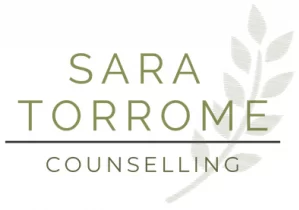As a counsellor in Beaconsfield, I work with many people who often find themselves grappling with anxiety-inducing difficult conversations. These dialogues are an integral part of life and can hold the key to resolving conflicts, strengthening relationships, and fostering personal growth. However, navigating these conversations can be challenging. Here are 10 top tips to guide you through the process of mastering the art of difficult conversations.
1: Preparation is Key
Before diving into a difficult conversation, take some time to prepare yourself mentally and emotionally. Clarify your objectives, identify your concerns, and anticipate possible responses. Being well-prepared will boost your confidence and help you stay on track during the conversation.
2: Choose the Right Time and Place
Timing and location can significantly impact the outcome of a difficult conversation. Select a time when both parties are calm and open to dialogue. Ensure you have privacy and minimal distractions to create a conducive environment for meaningful communication.
3: Active Listening
Effective communication begins with active listening. Give the other person your full attention, without interrupting or formulating your response while they speak. Acknowledge their feelings and perspective, demonstrating empathy and understanding.
4: Express Yourself Clearly and Respectfully
When it's your turn to speak, express your thoughts and feelings clearly and respectfully. Use "I" statements to convey your perspective without assigning blame. Avoid accusatory language and focus on the issue at hand.
5: Stay Calm and Manage Emotions
Difficult conversations can trigger strong emotions. Stay calm and composed, even if the other person becomes upset or defensive. Take deep breaths and maintain a composed demeanour to de-escalate tension.
6: Ask Open-Ended Questions
Encourage dialogue by asking open-ended questions. These questions require more than a simple "yes" or "no" answer, fostering a deeper exploration of the issue and promoting understanding.
7: Seek Common Ground
Identify common ground and shared goals to build a sense of unity and collaboration. Emphasize your willingness to work together towards a resolution.
8: Be Open to Compromise
Sometimes, difficult conversations involve finding the middle ground or compromise. Be open to alternative solutions and be willing to adapt your perspective if it benefits the overall relationship or situation.
9: Follow Up
After the conversation, follow up with the other person to ensure clarity and understanding. This step reinforces your commitment to resolving the issue and maintaining open communication.
10: Self-Care
Difficult conversations can be emotionally draining. Engage in self-care practices to process your emotions and reduce stress. This may include journaling, meditation, or seeking support from friends, family, or a counsellor.
Mastering the art of difficult conversations is a valuable skill that can transform your personal and professional relationships. Remember that seeking support from a counsellor can provide you with additional guidance and strategies to navigate challenging conversations effectively.
If you find yourself struggling with a specific difficult conversation or would like further assistance in improving your communication skills, please don't hesitate to reach out. I offer counselling services in Beaconsfield and online, and I'm here to help you navigate the complexities of effective communication and relationship building.
